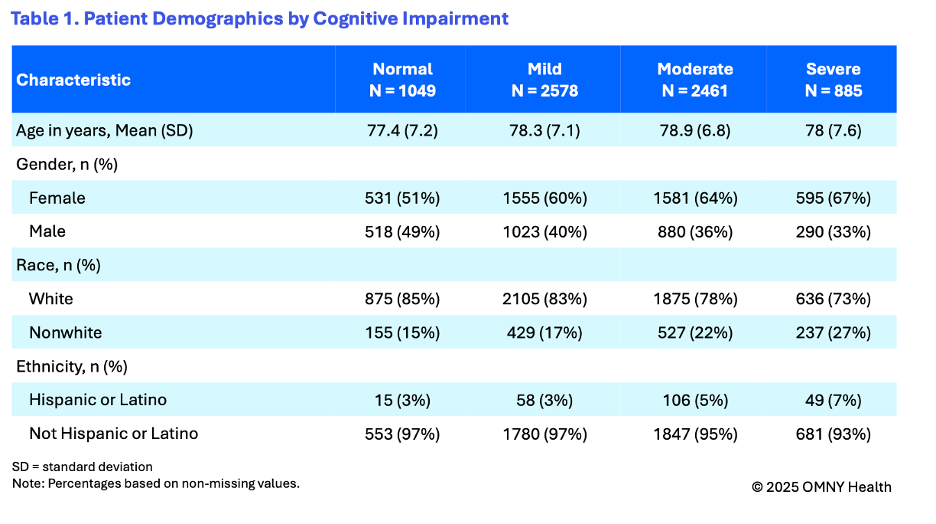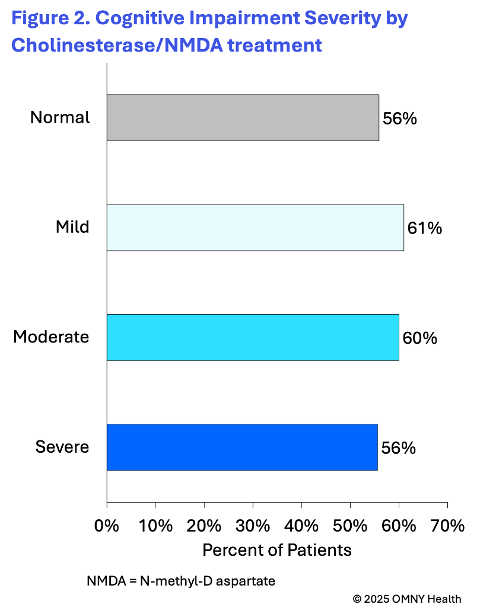Spanning nearly 30 percent of the U.S. population, the de-identified data available includes insights from unstructured clinical notes, electronic medical records, and medical claims
ATLANTA, GA – July 31, 2025 – OMNY Health, the leading healthcare ecosystem for compliant real-world data (RWD) insights at scale, today announced its data network now officially encompasses insights from more than 100 million patients across all 50 U.S. states. This landmark achievement solidifies OMNY Health’s position as a premier source for comprehensive, HIPAA-compliant de-identified RWD, providing life sciences organizations, healthcare providers, and AI innovators with unparalleled access to standardized, rich, longitudinal patient journeys.
Since onboarding its first provider partner in 2020, OMNY Health has expanded to include more than 46 leading healthcare organizations, including St. Luke’s University Health Network, Bon Secours Mercy Health, and Baptist Health System KY & IN, providing a comprehensive view of patient care. The data on its platform spans more than eight years of historical data, including billions of clinical encounters from more than 650,000 providers as well as 6.5 billion clinical notes, making it the deepest repository of unstructured clinical knowledge in the country. The breadth of the OMNY health platform enables deeper insights into disease progression, treatment patterns, and patient outcomes. Additionally, OMNY Health’s data spans every therapeutic area, with most having comprehensive data from more than 10 million patients each, further supporting its diverse use cases across the healthcare ecosystem.
“Unlocking AI’s transformative power in healthcare demands a new approach for collaboration. It’s not just about volume of data, but more importantly, about the quality, diversity, and real-world representation of the data available to researchers,” said Matthew Fenty, Managing Director for Innovation & Strategic Partnerships at St. Luke’s University Health Network. “From their beginnings, OMNY Health has maintained a keen understanding of this critical need and provides a platform that empowers health systems like ours to securely contribute and collectively build the rich, diverse data foundation essential for cutting-edge AI development. Our participation with OMNY Health is a testament to our commitment to advancing patient care through responsible data innovation.”
“The healthcare industry has witnessed time and again how the power of collective knowledge and collaboration can improve the outlook on complex healthcare challenges. The COVID-19 pandemic was a stark reminder of the need for sharing de-identified data to close information gaps,” said Mark Townsend, MD, MHCM, Chief Clinical Digital Ventures Officer, Bon Secours Mercy Health and Accrete Health Partners. “We are proud to partner with OMNY as they continue to bring stakeholders together, ensuring that shared data drives innovation safely and responsibly.”
Brett A. Oliver, MD, Chief Medical Information Officer at Baptist Health System KY & IN, added, “Artificial intelligence is only as smart as the patchwork quilt of information we feed it. At Baptist Health, we’ve learned that real clinical insight—and true equity—emerges only when every thread of the patient story is woven into the model. That’s why OMNY Health’s drive to knit together a living, breathing data network isn’t just helpful; it’s the loom on which tomorrow’s breakthroughs will be spun. We’re thrilled to keep adding squares to that ever‑growing quilt.”
OMNY Health’s proprietary AI, Natural Language Processing (NLP), and Large Language Model (LLM) technologies are central to this achievement, transforming vast amounts of raw, often unstructured, clinical information found in clinical notes into research-ready variables. This unique capability allows researchers to uncover nuances buried in free-text clinician notes – details on symptoms, adverse events, treatment rationales, and social determinants of health – that are critical for a complete understanding of real-world patient experiences.
“Reaching 100 million patient lives is a monumental step forward in our mission to accelerate life-changing innovations through data-driven insights,” said Dr. Mitesh Rao, Founder and CEO of OMNY Health. “This milestone could not have been achieved without the ongoing support of our data partners. We’re incredibly grateful to collaborate with leading organizations that share our vision for advancing healthcare research. As we continue to grow, we look forward to expanding the platform to impact more lives and solve some of the most difficult problems in healthcare.”
OMNY Health plans to continue to expand its dynamic network of specialty health networks, hospitals, academic medical centers, and integrated delivery networks across the U.S., with the goal of achieving more than 125 million patient lives on the platform by the end of 2025. For more information on OMNY Health and its data platform, please visit www.omnyhealth.com.
###
About OMNY Health OMNY Health™ is the leading healthcare ecosystem for compliant real-world data insights at scale. OMNY Health connects patients, providers, and life sciences companies by transforming vast amounts of de-identified electronic health record data, clinical notes, and claims data into robust, research-ready insights. Leveraging proprietary AI, NLP, and LLM technologies, OMNY Health accelerates therapeutic innovation, optimizes clinical development, and enhances patient care. For more information, visit www.omnyhealth.com.
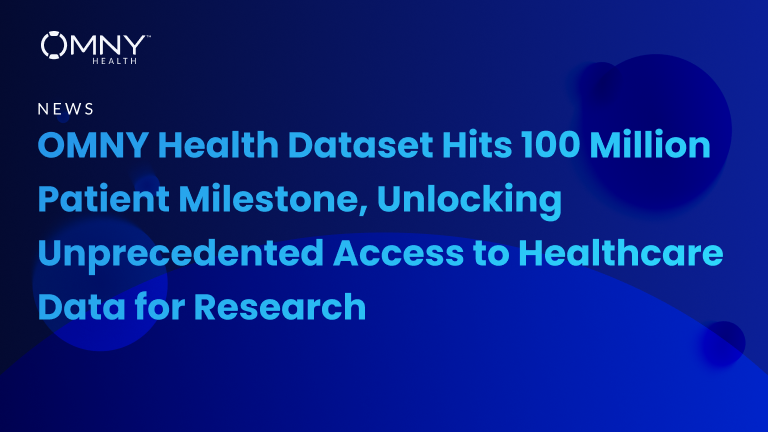


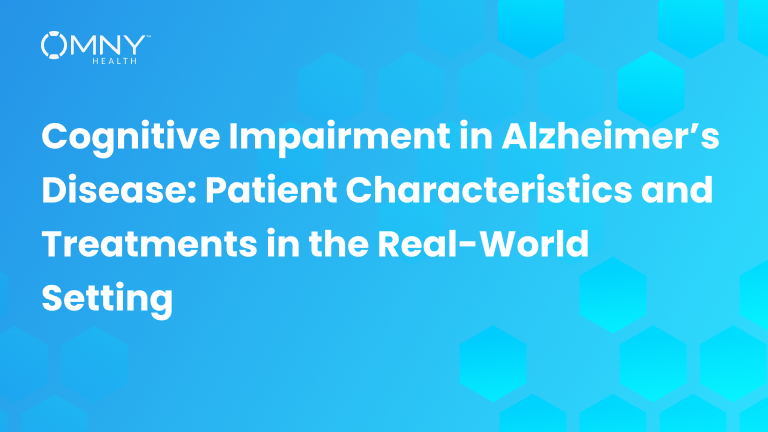
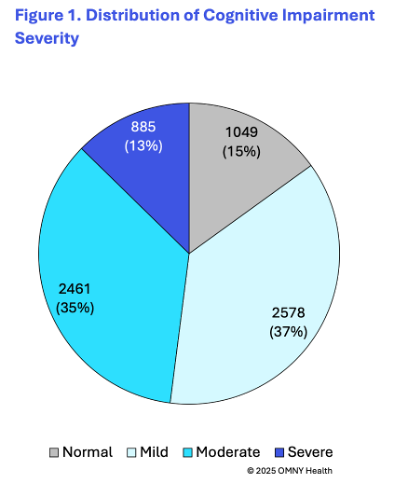 The findings provide insight into the cognitive state of patients as they are first observed within the health system and receiving a diagnosis of Alzheimer’s disease. On average patients were 78 years of age at the time of their first observed diagnosis. Following the first observed diagnosis of Alzheimer’s, patients were categorized into four groups based on their first reported cognitive scores: normal, mild, moderate, and severe.
The findings provide insight into the cognitive state of patients as they are first observed within the health system and receiving a diagnosis of Alzheimer’s disease. On average patients were 78 years of age at the time of their first observed diagnosis. Following the first observed diagnosis of Alzheimer’s, patients were categorized into four groups based on their first reported cognitive scores: normal, mild, moderate, and severe. 